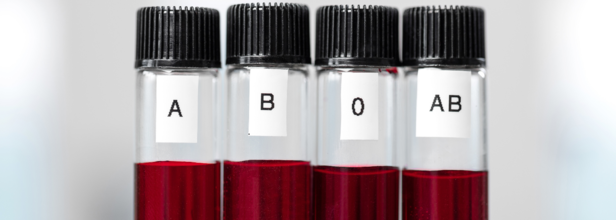
Credits: Canva
The Rarest Blood Type In US, Know What Is It
There are different blood types everywhere, and in the US, while different blood types are prevalent in different parts, AB-negative is the rarest across the country, with O-positive being the most common blood type.
What are blood types?
Blood drops contain red blood cells, which carry oxygen throughout your body. It also contains white blood cells, which helps fight infection, and platelets, which helps your blood clot, especially when there is an injury and you need to stop bleeding.
However, this is not it, there are at least 33 blood typing systems, but only two are widely used. The ABO and the Rh factor, that considers the Rh-positive or Rh-negative blood group systems.
ABO system
The two most important antigens here are A and B. A person can either have both or just one of the antigens in your blood cells, which is determined by your genetics. If neither of these antigens are present, then your blood type is O.
Rh factor
Blood is also typed according to this, found on red blood cells. If the cells have the Rh antigen, then they are Rh-positive, if they do not have it, then they are Rh-negative.
These two factors determine the blood types, forming 8 basic blood types:
- A positive
- B positive
- AB positive
- O positive
- A negative
- B negative
- AB negative
- O negative
What is the rarest blood type in US?
The Stanford School of Medicine Blood Center, ranks blood types in US, and it ranks AB-negative at the top for the rarest blood type, with .6% of the population with the blood type.
As per the institution, the ranking are as followed:
- AB negative at .6%
- B negative at 1.5%
- AB positive at 3.4%
- A negative at 6.3%
- O negative at 6.6%
- B positive at 8.5%
- A positive at 35.7%
- O positive 37.4%
However, this ranking is not universal. For instance, in India, the most common blood type is B-positive, whereas in Denmark, it is A-positive. The variation could be seen in ethnic groups. As per the Red Cross, Asian Americans are much more likely to have B-positive blood type than Latin Americans and white Americans.
Other countries with most and least common blood types
Philippines - the most common here is O positive, accounting for 36.9%, whereas the least common is AB negative with only .03% of the population.
Thailand - the most common here is O positive, accounting for 40.8%, whereas the least common is AB negative with only .03% of the population.
Australia - the most common here is O positive, accounting for 40%, whereas the least common is AB negative with only 1% of the population.
Nigeria - the most common blood type here is O positive, accounting for 51.3% of the population, whereas the least common is AB negative, with only .1% of the population.
France - the most common blood type here is A positive, accounting for 37% of the population, whereas the least common are B negative and AB negative, with only 1% each for the entire population.
How are they inherited?
Blood types are inherited through genetics. You might inherit A gene from one parent and B gene from another. Your blood type could be AB type, if you get B antigens from both the parents, then it could be a B type.
This is how it works for blood types, depending on which antigen is dominant and which is recessive.
© 2024 Bennett, Coleman & Company Limited

